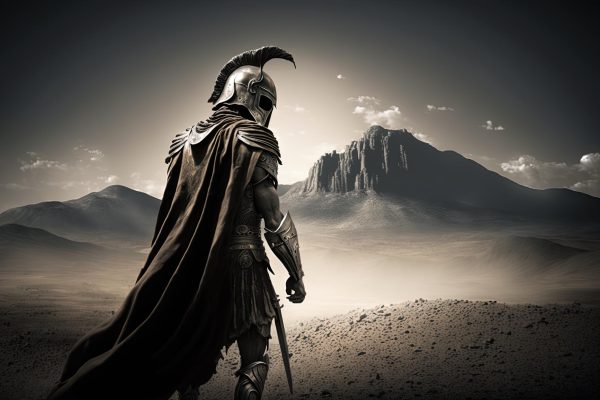We all have work to do
The weeks since the election have been incredibly emotional and trying. The contentious conversations and arguments seem infinite and utterly unproductive. If you possess a spine and stand for anything at all, surely you have taken part in these arguments I am describing.
Regardless of political affiliation there are a series of emotions that have followed this election. That process may be: anticipation – disbelief – sadness – fear – anger – motivation. Or it may be: anticipation – excitement – joy – anger at the vocal resistance. If you are equipped with the smallest connection to human sensation, you probably fall somewhere in this emotional timeline.
In trying to understand how this happened, I have read dozens of articles, just like this one. Each sharing a personal and singular explanation of how we got to this point and where we can place the blame. Was it the rural/urban divide, the fear of our first woman president on the heels of our first black president, the corruption of both candidates, the media bias for Clinton, the media attention on Trump, the inability of candidates to mobilize larger numbers of voters, etc. etc. The list could go on, but you get the point. In some sense all of them are valid.
But what was the problem, and who should we blame?
I am the problem. You should blame me.
And you are the problem; you must shoulder some blame too.
Someone once told me that, “In every argument, both people are wrong.” When I heard that, I did what any human would do. I argued.
After observing my altercations, I realized that I do always have a role in perpetuating the conflict. Also, in the other person’s eyes, I am wrong and vice versa.
In every one of those examples listed above, part of the argument is true. By nature we all want to place blame, we all want a simple explanation, and we all want to be right. But someone has to be wrong; someone has to be the scapegoat. Rarely would we name ourselves.
Getting to the point we are today didn’t happen overnight or in the 18 months of the presidential campaign. It happened over years and decades.
There is plenty of evidence of the growing friction. The political arena has been experiencing a growing chasm in bipartisan cooperation. This is a trend that started in 1983 and has escalated to this day. Television has played a role in furthering this division, and now the advent of social media has citizens performing this role outside of the mainstream media. This highlights a breakdown in the ability of the government to perform its job.
Despite high approval ratings, Obama has drawn fierce criticism. He inherited one of the worst political climates in history and was blocked by the GOP in many attempts to bolster the economy and support the middle class. Despite this political opposition, he has achieved great success with his time in office.
However, the financial recovery has been painfully slow, and no one has felt this greater than the working class. Narrating the great things Obama has done, is likely a weak argument to an individual or even an entire town that has been out of work for the last six years. The housing and banking crisis, as well as the following great recession have left very personal wounds on lots of American families.
The 1960’s were an incubator for many great movements, from environmental initiatives, to the second wave of feminism, to the civil rights movement and beyond. These events are credited for so many of the ‘freedoms’ that are appreciated today. But these came with great pain, suffering and loss. Somehow these causes got lost in the following decades. The rights of blacks and women made great strides, then disappeared from the limelight.
An abundance of police on black murders, show how far the country is from the civil rights that MLK died for on April 4, 1968. There are countless communities around this country that are hurting and angry, rightfully so. The phrase that has risen “Black Lives Matter” has been ignorantly insulted by the phrase “All Lives Matter”. If you have ever been pulled over and your biggest fear is getting a ticket, you cannot rebut that sentiment the “Black Lives Matter”. It’s called white privilege, it’s real and it’s an incredibly ugly double standard.
9/11 changed America and the world. It ignited patriotism and united the country, but it also cast a huge shadow of fear and misunderstanding around the Muslim religion. The wars and terrorist attacks over the last 16 years have deeply reinforced these feelings. However, few Americans know much about Islam. These acts may have been done in the name of jihad, Allah or Islam, but few of us really know what that means. Islam is not a simple religion, its complexities reach into every facet of daily life that most practicing Christians don’t fully appreciate.
The reason for each of these examples, is the breadth of points of view for each. In large part, we talk about these issues among our own tribe. Rarely do we seek outside counsel from those that are ‘different’ from us. We develop our opinions, largely in a vacuum. We don’t open ourselves to other points of view, we develop our opinions and search out blame when outcomes are unsatisfactory. We make assumptions about the wants, needs, perceptions, and attitudes without validation.
Beyond the realm of race, gender, religion, sexual preference, gender identity or socioeconomic class, we also do this with political affiliation.
Whatever side you are on, something very significant is happening right now in this country. There have not been widespread protests because of a presidential election in recent history, not like the ones we are seeing. The fact that Donald Trump won the majority of electoral votes sends a message about the state of our nation. Just as the outcry that has followed.
This campaign season tapped into all of these issues. But it didn’t do so by addressing them, it did it by coming through the backdoor of fear and ignorance.
This nation has become more and more diverse, and simultaneously it has also continued to splinter and segregate. The proliferation of screens shields us from the growth that comes from human interaction. The various outlets have made us all talkers, and few of us listeners. We all think we know what is right, but really we only know our own version right.
Each of us have an obligation at this point to deeply understand the policies and people that are mobilizing to run our country. The civil rights, foreign policy and economic plans that have all garnered much attention over the past weeks will all have a rippling effect. While you might not feel the direct impact, your community will.
Please, take the time to understand everything that transpires. Then go out and have intelligent conversations. Be engaged and opinionated, but open minded. Each of us is responsible for shaping the culture of this country, not just the people in the White House. Whatever side you find yourself on, things will continue to be abrasive. The most productive action we can take as individuals is to build solidarity, inclusion and understanding in our own communities.
Your donation will support the student journalists of Park University. Your contribution will allow us to cover our annual website hosting costs, freeing up other funds for equipment, printing and training.






